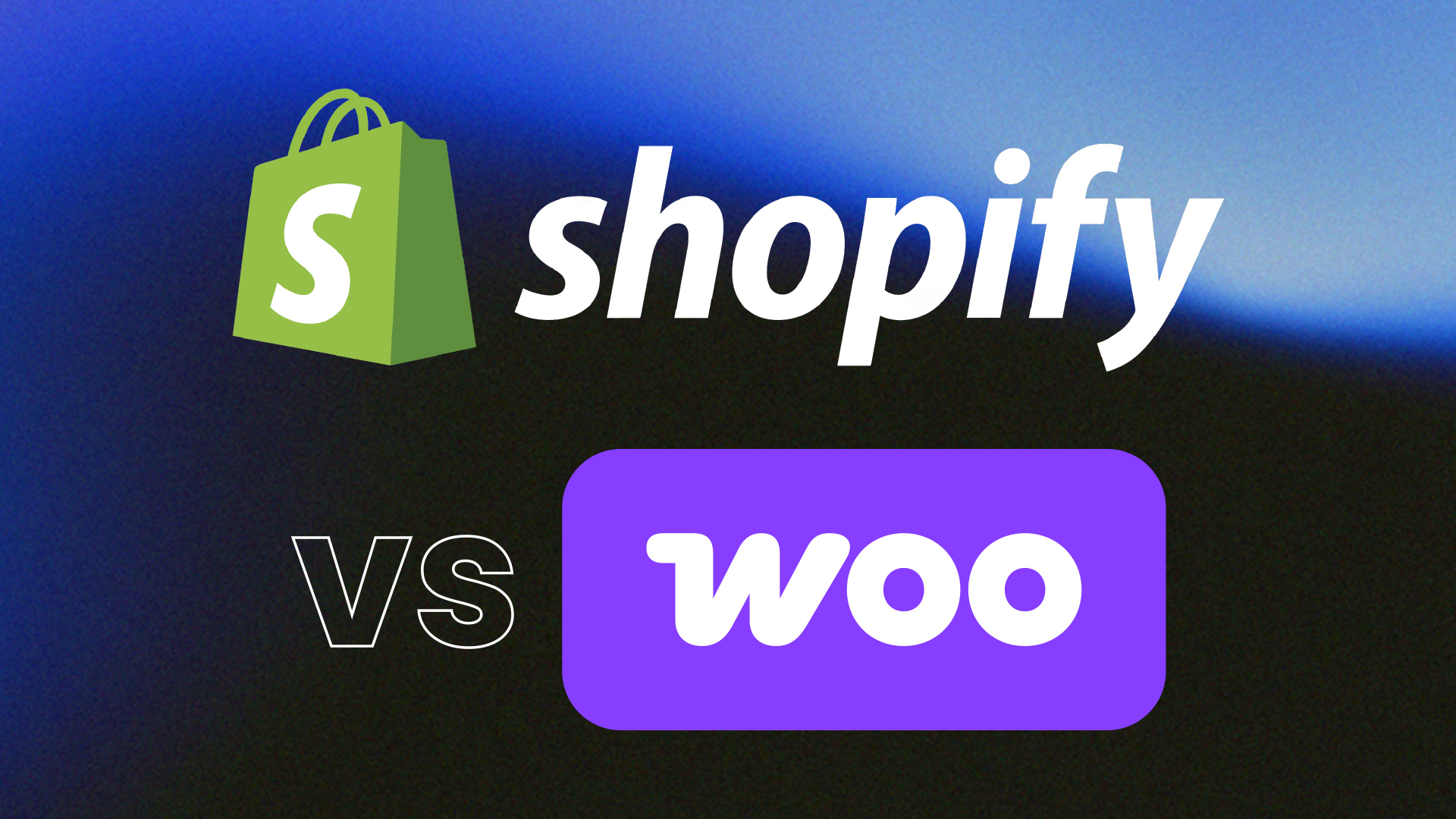In today’s digital-first economy, having an online store isn’t just an option – it’s a necessity. But for many business owners, the question isn’t whether to sell online; it’s how. Two of the most popular e-commerce platforms on the market are Shopify and WooCommerce, both offering powerful features and scalability for growing businesses. But which is right for you? Let’s find out.
At Fenti, we work with a wide range of clients who want to launch or optimise their online stores. Choosing the right platform can make all the difference to performance, flexibility, and long-term profitability. So, let’s break down the strengths, weaknesses and key differences between Shopify and WooCommerce, to help you make an informed choice.

What are the basic differences between Shopify and WooCommerce?
Shopify is a fully hosted e-commerce platform. This means everything from hosting and security to payment processing, all handled by Shopify’s system. It’s an all-in-one solution designed for simplicity and ease of use.
WooCommerce, on the other hand, is a WordPress plugin that transforms a standard website into a fully functional e-commerce store. It’s open-source, giving users complete control over customisation, functionality, and hosting.
The real differences between Shopify and WooCommerce?
- Shopify = simplicity and convenience.
- WooCommerce = flexibility and control.
Both platforms are highly capable, but they cater to different business needs and levels of technical confidence.
How easy is it to use Shopify and WooCommerce?
One of Shopify’s biggest selling points is its user-friendliness. From setup to launch, the platform guides users through each stage with minimal technical know-how required. The interface is clean, intuitive and ideal for those who want to focus on sales rather than site management. Shopify also offers built-in templates, drag-and-drop functionality and integrated apps that make customisation quick and painless. For small businesses or start-ups with limited time and technical expertise, this simplicity is a huge advantage.
WooCommerce, by contrast, has a steeper learning curve. Since it’s built on WordPress, users must first manage their own hosting, install the plugin, and configure settings such as SSL certificates and payment gateways. However, once set up, WooCommerce offers far greater flexibility. You can modify virtually any element of your site – perfect for brands that want full control over their design and functionality.
Fenti’s verdict: Shopify wins for ease of use, while WooCommerce wins for creative freedom.

How much do Shopify and WooCommerce cost?
Platform pricing is one of the most crucial factors for any business decision. With Shopify, you pay a monthly subscription that includes hosting, security, and access to core features. Prices start from around £25 per month for the Basic plan, rising to over £300 per month for advanced packages. Additional costs may arise if you use premium themes or apps, and Shopify also charges transaction fees, unless you use Shopify Payments.
WooCommerce itself is free, but that doesn’t mean costless. You’ll need to pay for domain registration,hosting, SSL certificates and any premium plugins or extensions you use. These costs can vary widely depending on your setup and provider. However, WooCommerce’s open-source nature means you can scale costs more flexibly – spending only where necessary. In many cases, small businesses can launch an effective WooCommerce store for less than the cost of a Shopify subscription, though managing the technical side may require additional time or developer support.
Fenti’s verdict: WooCommerce offers better flexibility and potentially lower long-term costs, while Shopify provides predictable, all-inclusive pricing.
What design and customisation is there with Shopify and WooCommerce
Both platforms excel when it comes to design potential. Shopify offers over 100 professionally designed themes, many of which are mobile-optimised and conversion-focused. The Shopify Theme Store includes both free and paid options, which can be customised using the platform’s built-in editor or Liquid, Shopify’s coding language.
WooCommerce, being tied to WordPress, offers limitless design freedom. You can use virtually any WordPress theme, including hundreds of WooCommerce-specific designs. Developers can customise every pixel through HTML, CSS, and PHP, enabling unique, brand-specific layouts that Shopify may not accommodate. For brands with a clear creative vision or those that need niche functionality (for example, advanced booking systems or membership areas), WooCommerce’s flexibility is a huge advantage.
Fenti’s verdict: Shopify is best for quick, professional results. WooCommerce is best for brands that want something fully bespoke.

What features and functionality do Shopify and WooCommerce have?
Out of the box, Shopify provides an impressive suite of built-in tools:
- Unlimited product listings
- Abandoned cart recovery
- Multi-channel selling (including Facebook, Instagram, and Amazon)
- Built-in analytics and reporting
WooCommerce’s core plugin covers essential features, such as inventory management, tax settings and shipping options, but it shines through its plugin ecosystem. With over 60,000 WordPress plugins, you can add virtually any feature imaginable – from SEO tools to subscription management and advanced analytics. But this flexibility comes at a cost – too many plugins can slow down your website or create compatibility issues, so maintenance is key.
Fenti’s verdict: Shopify is ready to go straight away, while WooCommerce is more adaptable for complex, evolving needs.
Does Shopify or WooCommerce have the best SEO and marketing?
SEO is where WooCommerce often takes the lead. As part of the WordPress ecosystem, it integrates seamlessly with powerful SEO tools like Yoast SEO and Rank Math, allowing for advanced control over metadata, URLs and site performance.
Shopify, while good, is slightly more limited in terms of SEO flexibility. It automatically generates clean URLs and offers basic optimisation features, but users can’t modify certain structural elements as freely as they can in WordPress.
When it comes to marketing, Shopify makes things simple. It includes built-in email marketing, discount code management, and social media integration. WooCommerce offers similar capabilities through plugins, which can make campaigns more powerful but may require more setup time.
Fenti’s verdict: WooCommerce for advanced SEO control; Shopify for streamlined marketing.

Who has the best security and maintenance, Shopify or WooCommerce?
Shopify handles security automatically, including SSL certification, PCI compliance, and regular updates. As a hosted solution, users don’t need to worry about patching software or securing servers.
WooCommerce places the responsibility on you (or your hosting provider). You’ll need to manage updates, backups and security plugins to keep your site safe. While this offers more flexibility, it also introduces potential risks if not maintained properly.
Fenti’s verdict: Shopify wins for security and maintenance convenience.
So who wins between Shopify and WooCommerce? Which should you choose?
Both Shopify and WooCommerce are excellent choices – the ‘best’ option depends on your priorities and technical capability.
Choose Shopify if you want:
- a straightforward, managed platform
- minimal technical involvement
- reliable support and hosting included
Choose WooCommerce if you want:
- full control over your website’s design and functionality
- flexibility in costs and scalability
- advanced SEO and content marketing options
At Fenti, we’ve seen both platforms deliver outstanding results when implemented strategically. Shopify is perfect for businesses that value simplicity and speed to market, while WooCommerce empowers brands that crave flexibility and creative freedom. If you’re still unsure which e-commerce platform is the best for you, we’re here to help you assess your goals, budget and technical requirements – you only need to chat with us to get started.



